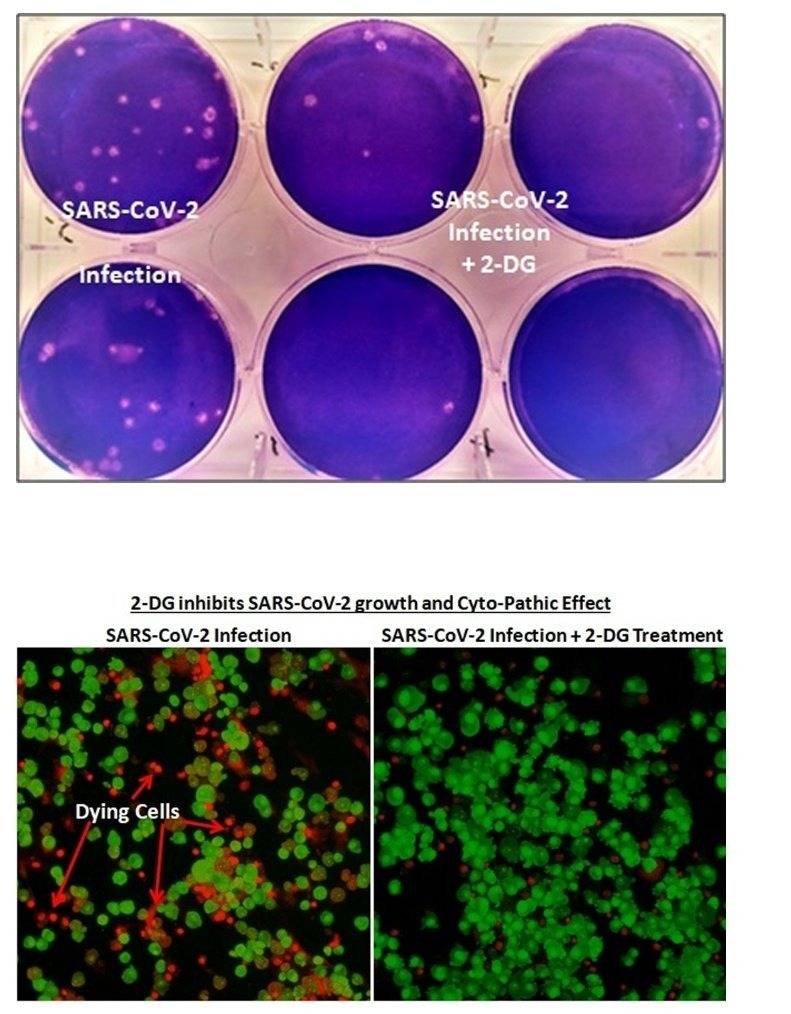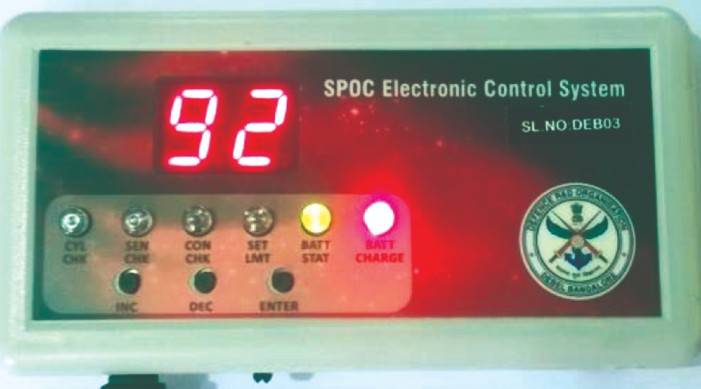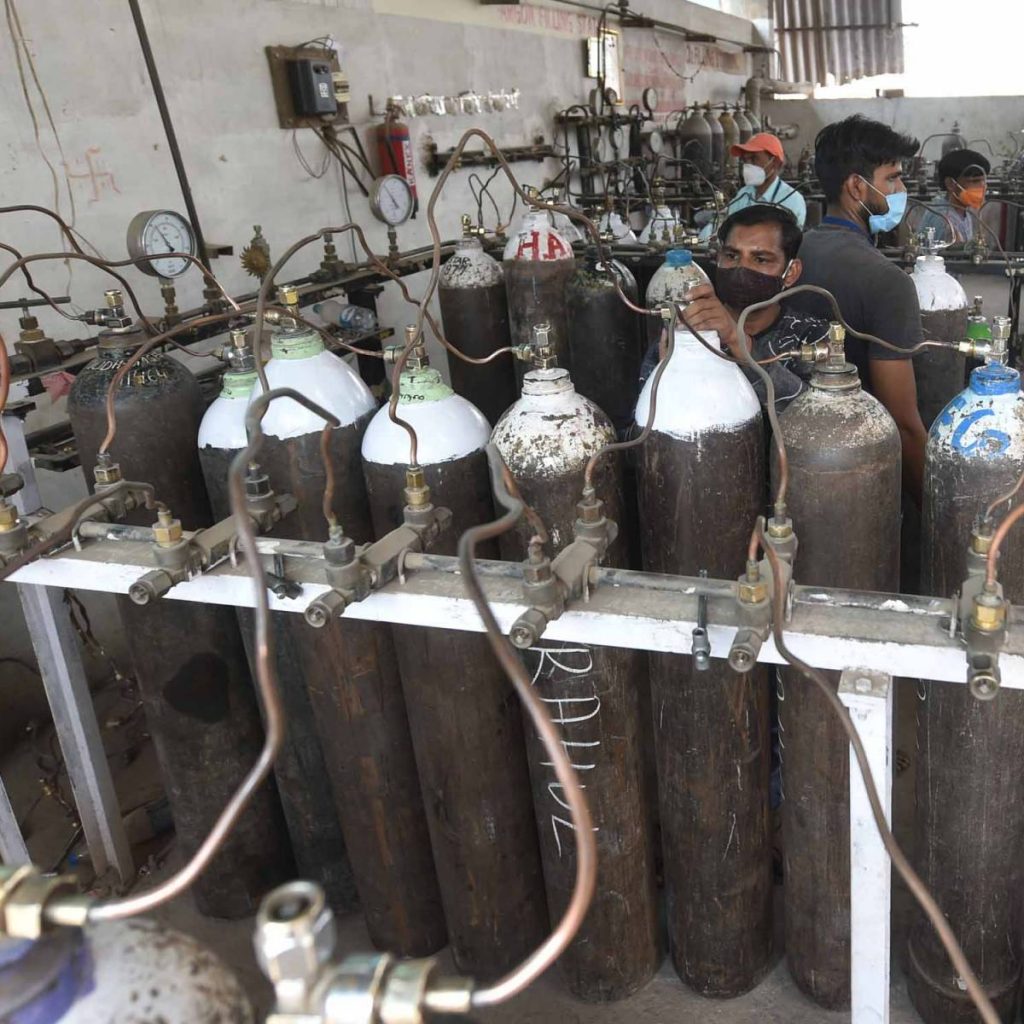Clinical trial results have shown that this molecule helps in faster recovery of hospitalised patients and reduces supplemental oxygen dependence…reports Asian Lite News.
The Drugs Controller General of India has approved an anti-COVID-19 drug developed by the Institute of Nuclear Medicine and Allied Sciences (INMAS) for emergency use, the Defence Ministry has said.
An anti-Covid-19 therapeutic application of the drug 2-deoxy-D-glucose (2-DG) has been developed by INMAS, a lab of the Defence Research and Development Organisation (DRDO), in collaboration with Dr Reddy’s Laboratories (DRL), Hyderabad.
Clinical trial results have shown that this molecule helps in faster recovery of hospitalised patients and reduces supplemental oxygen dependence.
A higher proportion of patients treated with 2-DG showed RT-PCR negative conversion in Covid patients. The drug will be of immense benefit to the people suffering from Covid-19.
“Pursuing Prime Minister Narendra Modi’s call for preparedness against the pandemic, DRDO took the initiative of developing anti-COVID therapeutic application of 2-DG,” the ministry said in a statement on Friday.
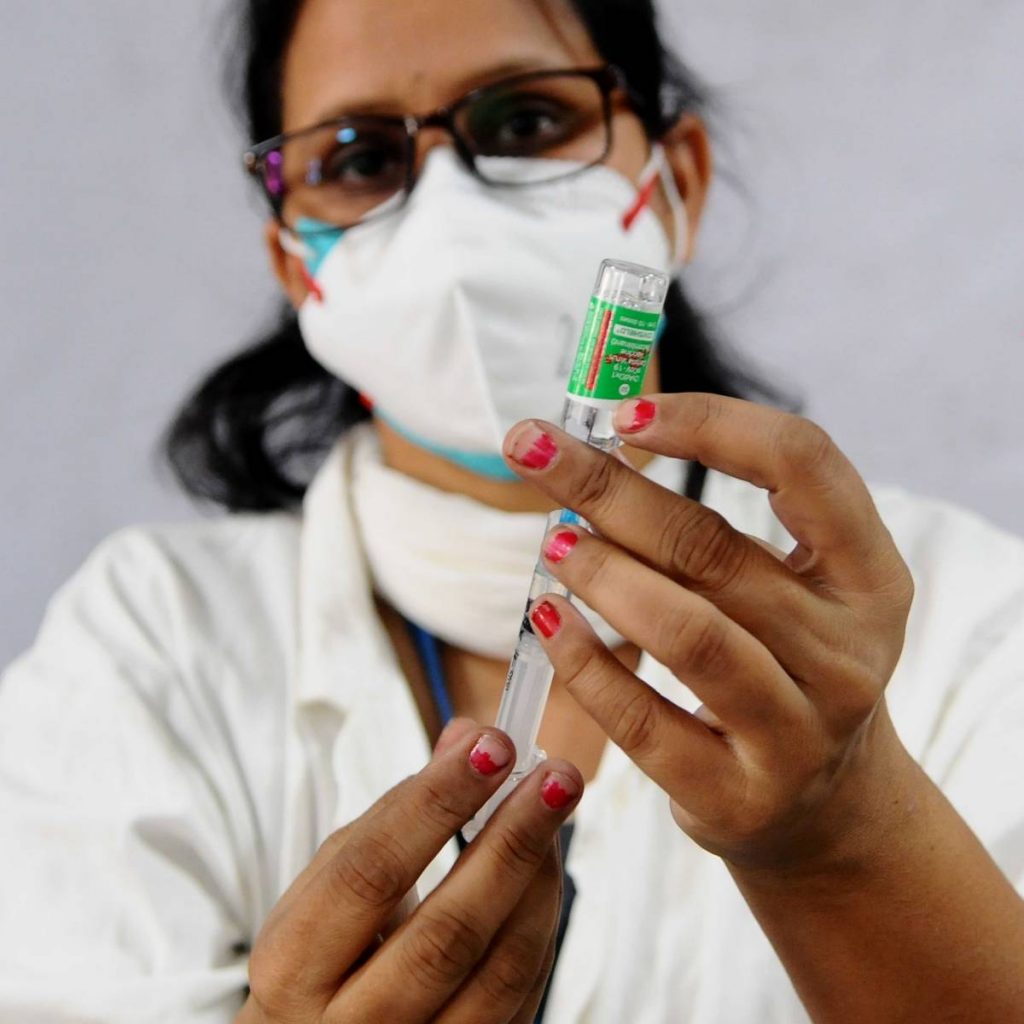
A health worker inoculates a Man with a dose of the Covishield vaccine against the Covid-19 coronavirus at a school temporary converted into a vaccination center, in New Delhi on India May 03, 2021 (Pallav Paliwal)
In April 2020, during the first wave of the pandemic, INMAS-DRDO scientists conducted laboratory experiments with the help of the Centre for Cellular and Molecular Biology (CCMB), Hyderabad and found that this molecule works effectively against the SARS-CoV-2 virus and inhibits the viral growth.
Based on these results, the Drugs Controller General of India’s (DCGI) Central Drugs Standard Control Organization (CDSCO) permitted the Phase-II clinical trial of 2-DG in COVID-19 patients in May 2020.
The DRDO, along with its industry partner DRL, Hyderabad, started clinical trials to test the safety and efficacy of the drug in COVID-19 patients.
In Phase-II trials (including dose-ranging) conducted from May to October 2020, the drug was found to be safe in Covid-19 patients and showed significant improvement in their recovery.
Phase-IIa was conducted in six hospitals and Phase IIb (dose-ranging) clinical trial was conducted at 11 hospitals all over the country. The Phase-II trial was conducted on 110 patients.
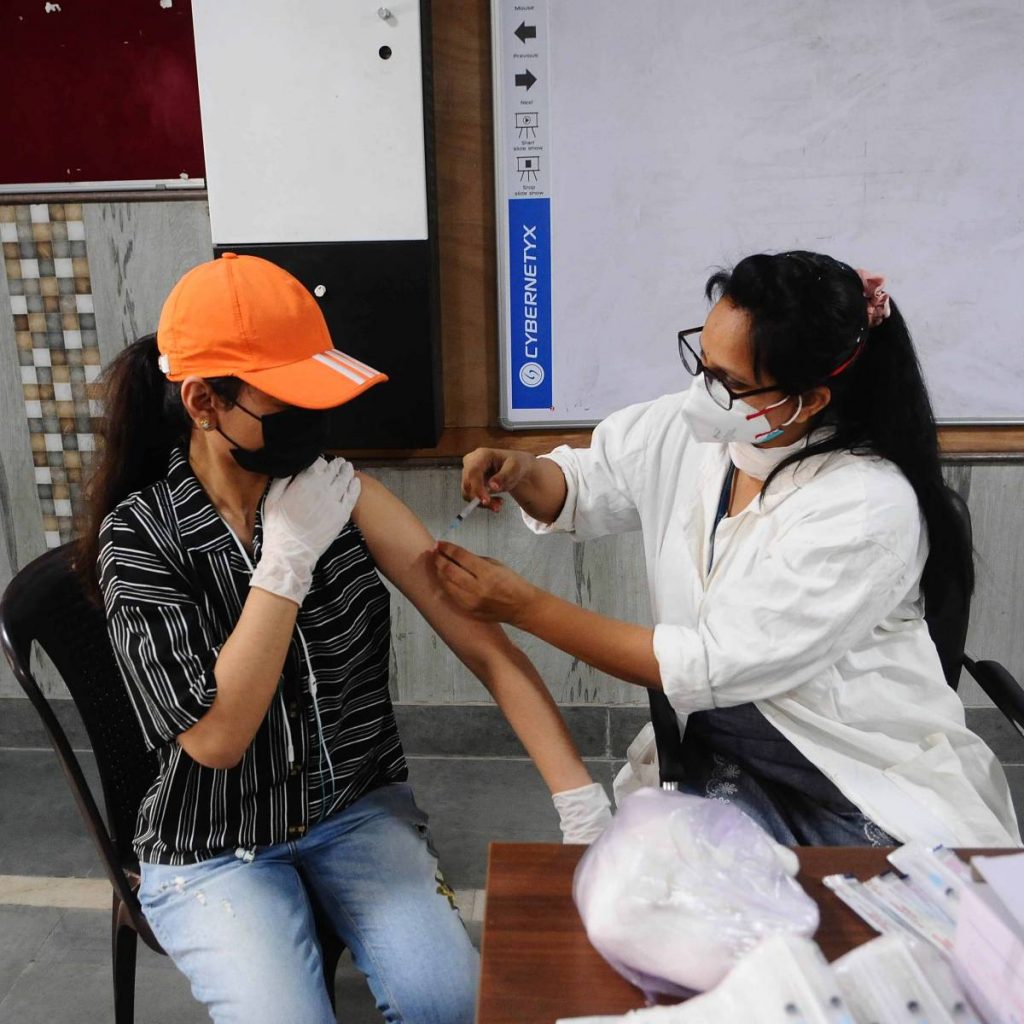
Inefficacy trends, the patients treated with 2-DG showed faster symptomatic cure than Standard of Care (SoC) on various endpoints.
“A significantly favorable trend (2.5 days difference) was seen in terms of the median time to achieving normalization of specific vital signs parameters when compared to SoC,” the ministry said.
Based on successful results, the DCGI further permitted the Phase-III clinical trials in November 2020.
The Phase-III clinical trial was conducted on 220 patients between December 2020 to March 2021 at 27 Covid hospitals in Delhi, Uttar Pradesh, West Bengal, Gujarat, Rajasthan, Maharashtra, Andhra Pradesh, Telangana, Karnataka and Tamil Nadu. The detailed data of the Phase-III clinical trial was presented to the DCGI.
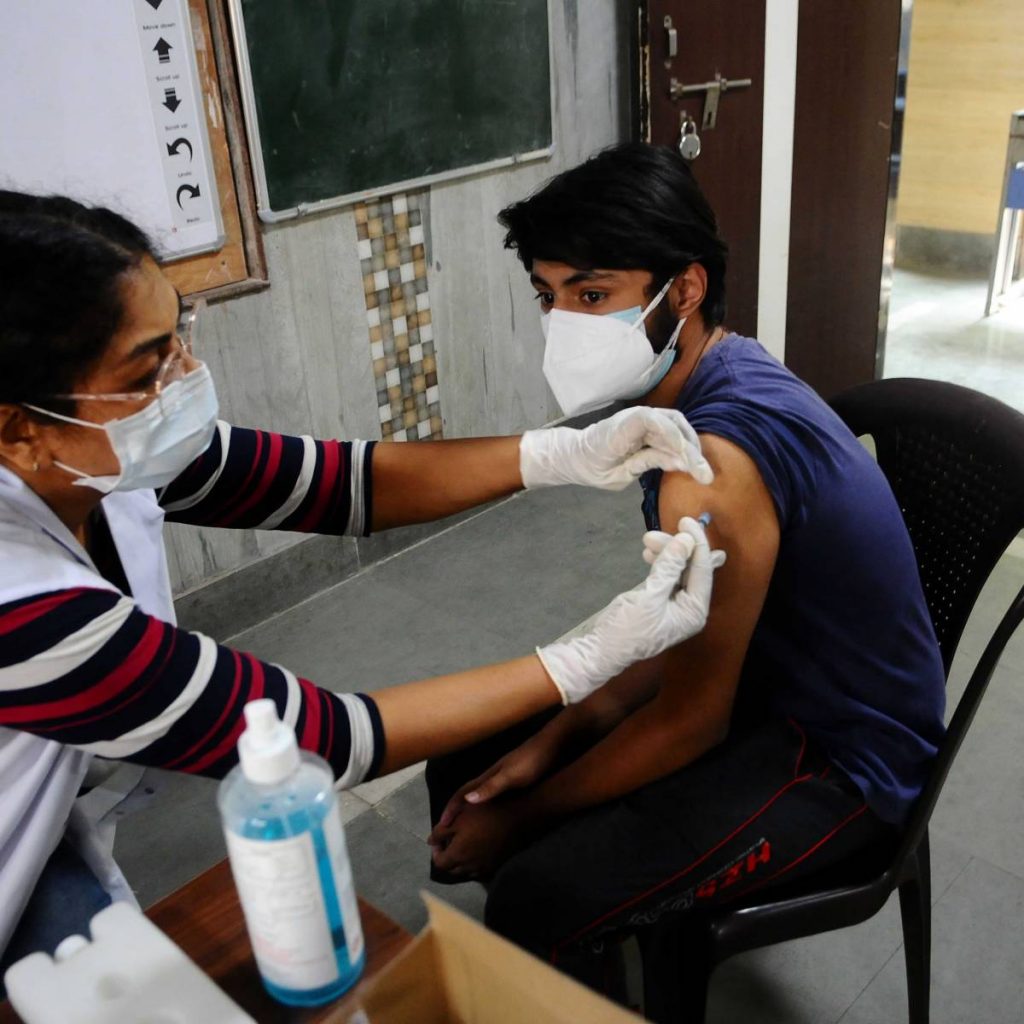
A health worker inoculates a Man with a dose of the Covishield vaccine against the Covid-19 coronavirus at a school temporary converted into a vaccination center, in New Delhi on India May 03, 2021 (Pallav Paliwal)
“In 2-DG arm, a significantly higher proportion of patients improved symptomatically and became free from supplemental oxygen dependence (42% vs 31%) by Day-3 in comparison to SoC, indicating an early relief from Oxygen therapy/dependence,” the ministry stated.
A similar trend was observed in patients aged more than 65 years.
On May 1, 2021, the DCGI granted permission for the Emergency Use of this drug as an adjunct therapy in moderate to severe COVID-19 patients.
Also Read-‘Pfizer-BioNTech vax very effective against UK, SA variants’
Read More-Switzerland sends medical aid to India

